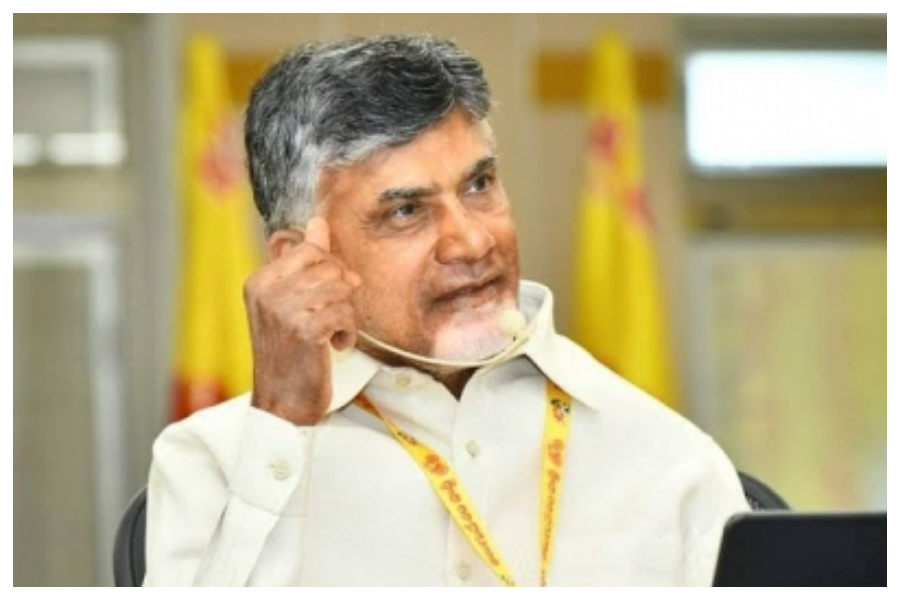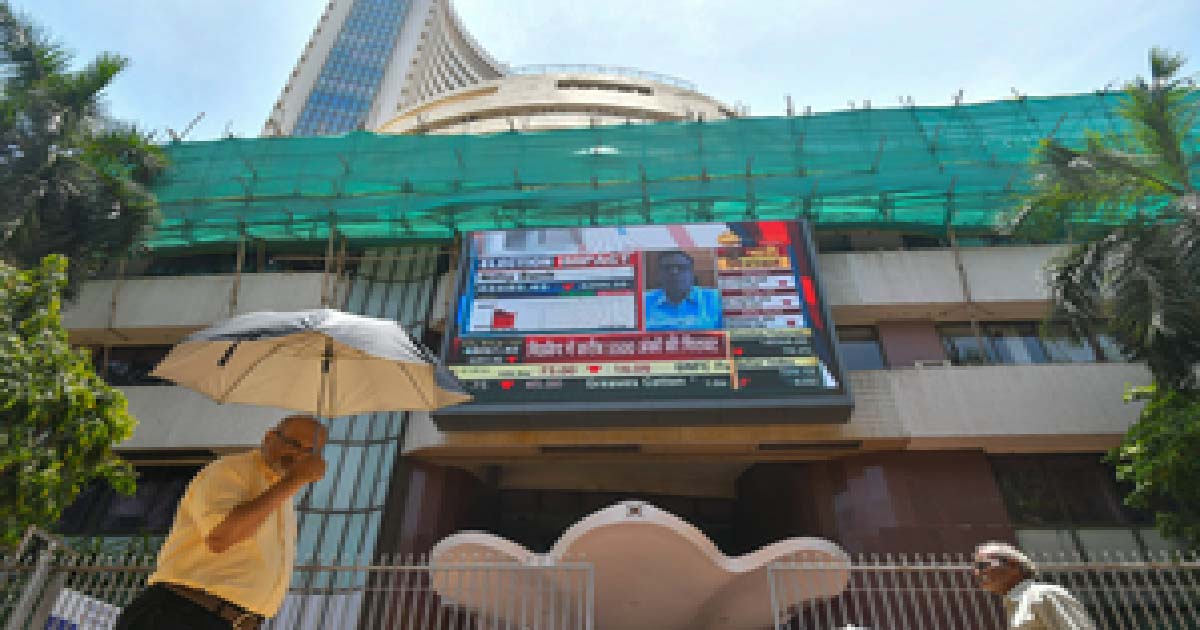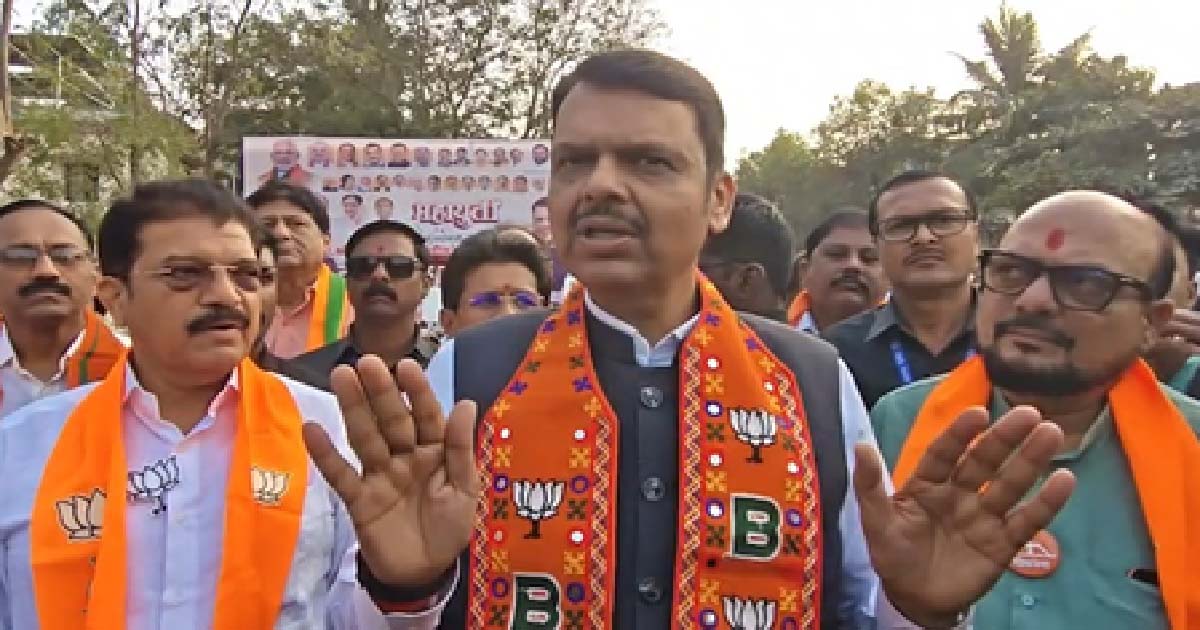National News
Naidu turns 72, gears up for another poll battle

As he turned 72 on Wednesday, former Andhra Pradesh Chief Minister Nara Chandrababu Naidu is gearing up for another electoral battle in his long chequered career.
Nearly three years after suffering his worst-ever electoral defeat, the Telugu Desam Party (TDP) chief appears to be down but not out as he looks to infuse new energy into the party for the 2024 poll battle.
Leading the charge against Y. S. Jagan Mohan Reddy-led YSR Congress Party (YSRCP) government, the veteran leader aims to make another comeback to power.
Though facing perhaps the toughest challenge of his four-decade-long political career, Naidu continues to be the tallest opposition figure who can take on Jagan Mohan Reddy, a leader 22 years younger to him.
As the leader of opposition in Andhra Pradesh Assembly, he is leading from front the fight against the ‘misrule’ of YSRCP. Backed by a strong cadre at the grassroots level, he is helming the TDP’s fight against the YSRCP government’s ‘corruption’, ‘anti-people policies’ and ‘atrocities’.
With two years to go for the polls and Jana Sena led by actor politician Pawan Kalyan and BJP yet to have a strong presence on the ground, Naidu seems to be the only one who can give Jagan Mohan Reddy a run for his money.
On his 72nd birthday, Naidu said that he is working to restore the glory of Telugu people. He visited Kanakadurga temple in Vijayawada, seeking blessings and strength to carry on what he calls the fight on behalf of people.
Thanking people for celebrating his birthday, Naidu assured them that he would carry forward the party by working as per their expectations. Determined to be steadfast in this fight, he is confident of a victory.
Political observers say 2024 could be a do or die battle for him. If he makes a comeback as the chief minister, he can groom his son Nara Lokesh as his political successor but if he fails, it could well be the end of the road for him.
Naidu’s four-decade-long career saw his political pendulum swinging wildly from left to right. In 2019, he exercised even his last option — aligning with the Congress but this gamble could not save him.
He not only lost power in the state but became irrelevant in the national politics as his friend-turned-rival Narendra Modi retained power at the Centre with a huge majority.
Desperate to stop Modi, Naidu was holding extensive deliberations with regional parties across the country to forge an anti-BJP alliance. He wanted to achieve what he did in 1996, when as the convenor of the United Front (UF) he brought together regional parties to prop up the government of the third alternative. In 1999, he donned a similar role for the BJP-led National Democratic Alliance (NDA).
A shrewd politician, Naidu was also seen as rank opportunist as he aligned with the BJP, apparently to ride on the Vajpayee wave. He succeeded in retaining power, which he got in 1995 after leading a revolt against his father-in-law and TDP founder N.T. Rama Rao.
Then known as the poster boy of new economic reforms, a reformist and a tech-savvy leader, Naidu mastered the skills of doing business with any formation at the Centre, irrespective of its ideology.
After losing power to his bete noire Y.S. Rajasekhara Reddy (YSR) in 2004 following a record 9-year stint as Andhra Pradesh chief minister, Naidu admitted his priorities were lop-sided which led to the neglect of agriculture in the state.
So he promised a slew of freebies in the 2009 elections, but the people remained unconvinced and gave YSR a fresh mandate.
The emergence of Narendra Modi as the prime ministerial candidate in 2014 offered Naidu a chance to revive his political fortunes.
He not only joined the NDA once again but by campaigning with Modi, he succeeded in storming to power in the truncated state of Andhra Pradesh, as people preferred him, apparently for his experience in developing Hyderabad as a tech hub.
As a leader who always enjoyed the role of a kingmaker and extracted his pound of flesh from the government at the Centre, Naidu was uncomfortable in the new dispensation where Modi had absolute majority.
Though facing post-bifurcation challenges like lack of state capital and poor finances, he had no option, but to quietly accept whatever was doled out to the state.
However, it was when YSR’s son and the chief of the YSRCP Y.S. Jagan Mohan Reddy started targetting him for his compromise over the Special Category Status (SCS) that Naidu realised how he was losing the ground to the opposition. In 2018, he pulled out of the NDA government accusing Modi of ‘betrayal’.
From a great admirer of Modi, Naidu soon turned into his worst critic and even joined hands with the Congress, his party’s sworn enemy of 35 years. This was Naidu’s biggest political misadventure.
His experiment ended in a disaster with the Congress-led United People’s Alliance (UPA) biting the dust.
Ironically, Naidu began his political career with the Congress party. At the age of 28, he was elected to Assembly from Chandragiri constituency in his native district Chittoor and became a minister in the state cabinet (1980-83)
When his father-in-law and popular actor N. T. Rama Rao floated TDP, Naidu was with the Congress and had even thrown a challenge at the former. The TDP wave in 1983 nearly wiped out Congress and Naidu too failed to re-elect to the Assembly.
Later, NTR admitted Naidu into TDP and since then he never looked back. Making a modest beginning in NTR dominant TDP, he climbed to the position of party general secretary.
In 1995, a few months after NTR led TDP back to power with a landslide victory, Naidu staged a revolt against father-in-law to become chief minister. NTR’s children backed Naidu as they were also unhappy over growing interference by his second wife Lakshmi Parvathi in administration and party affairs.
NTR, who accused Naidu of back-stabbing him, died of cardiac arrest in January 1996, dramatically changing the state’s political scene.
Since then Naidu has been heading TDP. He became the longest serving chief minister of undivided Andhra Pradesh (1995-2004). A decade later when Andhra Pradesh was bifurcated to carve out Telangana as a new state, he made a new beginning as the first chief minister of the residuary state of Andhra Pradesh.
Crime
Delhi demolition drive: BJP condemns stone-pelting incident, says officials followed HC order

New Delhi, Jan 7: BJP leaders on Wednesday strongly condemned the stone-pelting incident that took place during a demolition drive near a mosque in Old Delhi, asserting that the action was carried out strictly against encroachments in accordance with a High Court order.
They said those responsible for creating chaos and attacking security personnel must be dealt with firmly under the law.
The incident occurred near the Faiz-e-Ilahi Mosque in the Turkman Gate area, close to the Ramlila Ground, where the Municipal Corporation of Delhi (MCD) launched an anti-encroachment operation to remove unauthorised structures from land adjoining the mosque and nearby areas, in compliance with directions issued by the Delhi High Court on November 12, 2025.
As the demolition process began, a large number of local residents gathered outside the mosque, raising slogans and protesting against the action. The situation soon escalated when some members of the crowd attempted to breach police barricades and started pelting stones at security personnel deployed at the site.
Reacting to the incident, BJP MP Praveen Khandelwal told media, “I have been informed by the officials that this was a High Court order. The forces removed encroachments on government land. I am a resident of Old Delhi, and the people here are peace-loving. The removal was carried out strictly under the law and as per the High Court order.”
“The local police are investigating the matter, and based on CCTV footage, appropriate action will be taken. The police are monitoring the case,” he further said.
Minister Ashish Sood described the incident as unfortunate and said the demolition was carried out strictly under court directions.
“This is an unfortunate incident. Action was taken against commercial establishments near the Faiz-e-Ilahi Mosque strictly as per court orders, but some anti-social elements protested and resorted to stone-pelting, which is unacceptable,” Sood told reporters.
“The mosque remains completely safe, and the government has no role in the action, which is court-directed. Those involved in violence will face legal action, and people are urged to identify miscreants who incite such acts, as innocent youths ultimately suffer legal consequences,” he added.
Minister Manjinder Singh Sirsa also underlined that the action was based on judicial orders.
“These are orders from the High Court, and the High Court’s orders are being implemented. However, those who are doing such activities are wrong, and the police must take action against them. Whether it is an order from the High Court or the Supreme Court, it is the duty of the police and the government to enforce it,” he said.
Speaking to Media, Delhi Assembly Deputy Speaker Mohan Singh Bisht said unauthorised encroachments must be removed irrespective of their nature.
“Certainly, action should be taken in cases where there is unauthorised encroachment, and such encroachments must be removed. If illegal constructions of mosques or wedding halls have been made in areas like the Ramlila Ground, the importance of the location must be respected, and such action should definitely be taken,” he said.
Minister Ravinder Indraj Singh said that any encroachment must be removed. “There is no question of caste, community, or religious sentiment in this matter. Anything that causes inconvenience to individuals or society should be addressed and removed,” he told Media.
Meanwhile, police have registered an FIR under sections related to rioting, assault on a government servant and obstruction of a public servant in the discharge of official duties.
The police said 10 individuals have been identified and detained, and searches are underway to trace others allegedly involved in the violence.
Further details in the case are awaited.
Business
Sensex, Nifty open lower amid tariff-related concerns

Mumbai, Jan 7: The Indian benchmark indices posted mild losses early on Wednesday amid rising geopolitical tensions and fresh tariff-related concerns, tracking mixed cues from Asian markets.
As of 9.30 am, Sensex slipped 156 points, or 0.18 per cent to 84,907 and Nifty eased 54 points, or 0.21 per cent to 26,124.
Main broad-cap indices showed clear divergence with benchmark indices, with the Nifty Midcap 100 up 0.22 per cent, while the Nifty Smallcap 100 gained 0.25 per cent.
Sectorally, Nifty Auto was the top loser down 0.49 per cent. Sectors such as consumer durables, IT and metal gained 1.15 per cent, 0.91 per cent and 0.53 per cent, respectively.
Immediate support lies at 26,000–26,050 zone, and resistance placed at 26,300–26,350 zone, market watchers said.
Analysts said that recent market movements have been devoid of any trend and clear direction with few mega stocks disproportionately affecting the market. Despite positive institutional buying, Nifty fell 71 points yesterday due to sharp declines in two stocks, they said.
These two stocks’ large derivative and cash market volumes indicated settlement day activity, which were technical rather than fundamental, they added.
Events and news may cause high volatility in the future with US President Donald Trump’s tweet or action remaining a key watch point. Investors also closely watch the US Supreme Court verdict on Trump tariffs. If the verdict goes against the reciprocal tariffs, it will create huge volatility in stock markets, market watchers said.
Asian region traded mixed with defence stocks snapping the two-day winning streak. Investors weighed in geopolitical risks after the US attack on Venezuela and renewed rhetoric over Greenland.
In Asian markets, China’s Shanghai index added 0.29 per cent, and Shenzhen gained 0.35 per cent, Japan’s Nikkei lost 0.64 per cent, while Hong Kong’s Hang Seng Index shed 1.01 per cent. South Korea’s Kospi advanced 1.18 per cent.
The US markets were in the green zone overnight as Nasdaq added 0.65 per cent. The S&P 500 gained 0.62 per cent, and the Dow moved up 0.99 per cent.
On January 6, foreign institutional investors (FIIs) sold net equities worth Rs 106 crore, while domestic institutional investors (DIIs) were net buyers of equities worth Rs 1,749 crore.
National News
Maha civic polls: After tie-up with Cong in Ambernath, BJP joins hands with AIMIM in Akot

Akola/Thane, Jan 7: Politics continues to throw up unlikely alliances. After partnering with its traditional rival Congress to wrest control of the Ambernath Municipal Council from the Shiv Sena, the BJP has now stitched together an equally surprising alliance with Asaduddin Owaisi-led AIMIM in Akot to secure control of the Municipal Council there.
In Akot, BJP’s Maya Dhule was elected President despite the party falling short of a majority in the 35-member council. Of the 33 seats contested last month, the BJP won only 11. To bridge the gap, the party floated a new front — the Akot Vikas Manch — to consolidate numbers.
In a move that has raised eyebrows across political circles, the AIMIM, which secured five seats and was the BJP’s principal rival in the contest, has joined the BJP-led alliance. The front also includes both factions of the Shiv Sena (Shinde and UBT), both factions of the NCP (Ajit Pawar and Sharad Pawar), and Bacchu Kadu’s Prahar Janshakti Party.
BJP corporator Ravi Thakur has been appointed group leader, and a whip has been issued mandating alliance members to vote as directed by the BJP.
With this combination, the ruling alliance commands the support of 25 councillors, plus the President, taking its effective strength to 26 in the 33-member house. The Congress (6) and the Vanchit Bahujan Aghadi (2) will sit in the opposition.
The final tally of the 33 elected seats in Akot stands at: BJP 11, Congress 6, AIMIM 5, Prahar Janshakti Party 3, Shiv Sena (UBT) 2, NCP (Ajit Pawar) 2, Vanchit Bahujan Aghadi 2, Shiv Sena (Shinde) 1 and NCP (Sharad Pawar) 1.
The Akot alliance has sparked controversy, particularly in light of the BJP’s recent high-decibel “Batenge toh Katenge” campaign during the Assembly elections, with critics pointing out the contradiction between the slogan and a tie-up with the AIMIM.
A similar display of political pragmatism unfolded in Thane district’s Ambernath Municipal Council. In a setback for its state-level ally, the Eknath Shinde-led Shiv Sena, the BJP entered into an understanding with the Congress to secure control of the civic body.
In the 60-member Ambernath council, the Shiv Sena (Shinde faction) emerged as the single largest party with 27 seats, followed by the BJP (14), Congress (12), NCP (Ajit Pawar) (4) and three independents. By aligning with the Congress, NCP and two independents, the BJP cobbled together a working majority of 32 seats, capturing the President’s post and relegating the Shinde faction to the opposition. The Shiv Sena, even with the support of one independent, fell short at 28.
Despite the BJP’s national pitch for a “Congress-mukt Bharat,” the party’s local unit has moved ahead with Congress support to retain power, triggering visible discontent within the MahaYuti alliance.
Now attention is focused on how these “unnatural” alliances will play out on the ground — and how the BJP leadership reconciles these local compulsions with its broader political messaging.
-

 Crime3 years ago
Crime3 years agoClass 10 student jumps to death in Jaipur
-

 Maharashtra1 year ago
Maharashtra1 year agoMumbai Local Train Update: Central Railway’s New Timetable Comes Into Effect; Check Full List Of Revised Timings & Stations
-

 Maharashtra1 year ago
Maharashtra1 year agoMumbai To Go Toll-Free Tonight! Maharashtra Govt Announces Complete Toll Waiver For Light Motor Vehicles At All 5 Entry Points Of City
-

 Maharashtra1 year ago
Maharashtra1 year agoFalse photo of Imtiaz Jaleel’s rally, exposing the fooling conspiracy
-

 National News1 year ago
National News1 year agoMinistry of Railways rolls out Special Drive 4.0 with focus on digitisation, cleanliness, inclusiveness and grievance redressal
-

 Maharashtra1 year ago
Maharashtra1 year agoMaharashtra Elections 2024: Mumbai Metro & BEST Services Extended Till Midnight On Voting Day
-

 National News1 year ago
National News1 year agoJ&K: 4 Jawans Killed, 28 Injured After Bus Carrying BSF Personnel For Poll Duty Falls Into Gorge In Budgam; Terrifying Visuals Surface
-

 Crime1 year ago
Crime1 year agoBaba Siddique Murder: Mumbai Police Unable To Get Lawrence Bishnoi Custody Due To Home Ministry Order, Says Report












